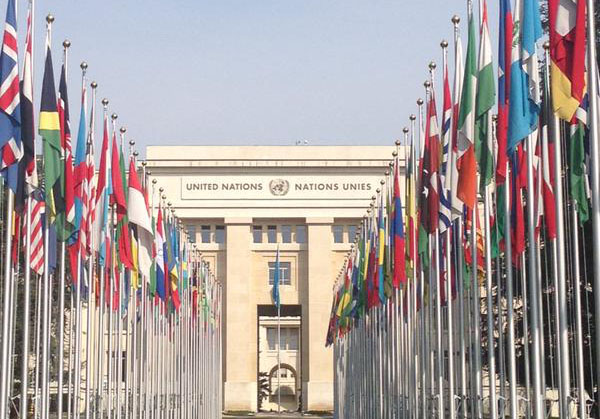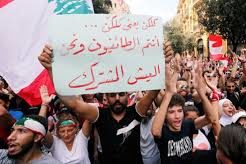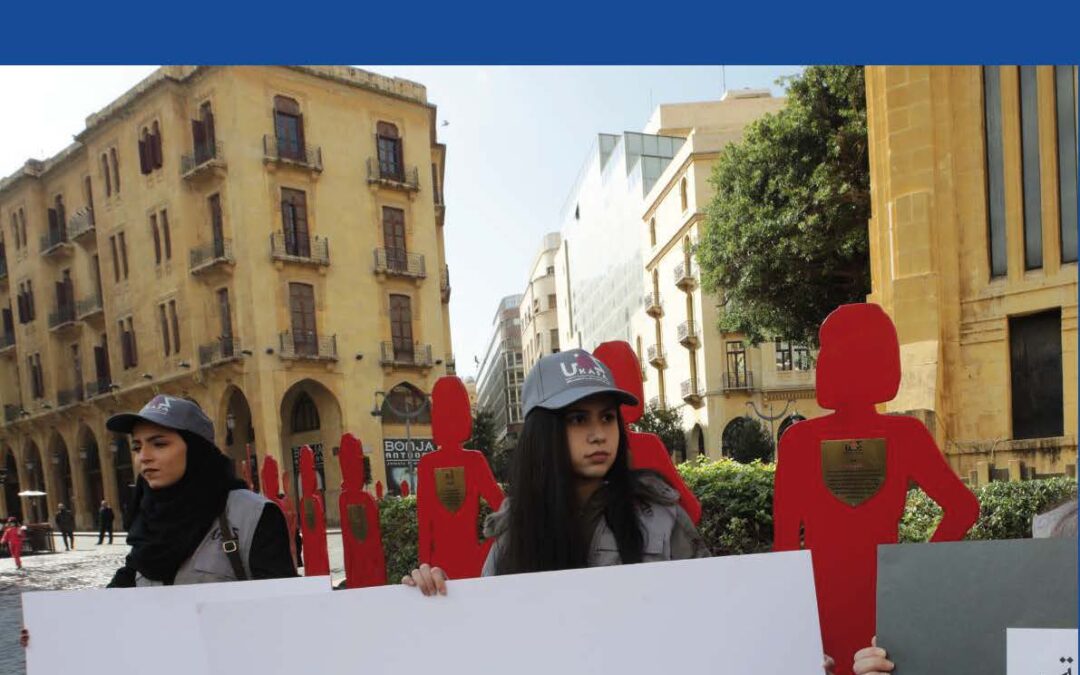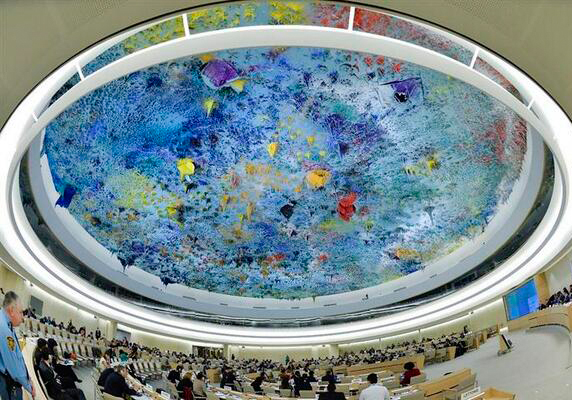
Jul 9, 2020 | Advocacy, Non-legal submissions
The ICJ filed a submission to the Human Rights Council’s Working Group on the Universal Periodic Review in advance of its review of Lebanon’s human rights record between January and February 2021.
Information provided in the submission was based on a number of recent ICJ publications, including on the independence of the judiciary; military courts; gender-based violence; and a forthcoming publication on the human rights of refugees and migrants in Lebanon.
In the submission, the ICJ drew the attention of the Working Group to the following concerns with respect to Lebanon:
- The independence of the judiciary and the use and jurisdiction of military courts;
- The obstacles that continue to impede women’s and girls’ access to justice for sexual and gender-based violence (SGBV); and
- The inadequate framework and practices undermining migrants’ and refugees’ rights.
The ICJ called on the Working Group and Human Rights Council to urge the Lebanese authorities to take the following actions:
With regard to the independence of the judiciary and the use and jurisdiction of military courts:
- End executive control and undue influence over the judiciary, including by divesting the Minister of Justice of any role in the selection, appointment, promotion, transfer, secondment or any other aspects of the management of the career of judges;
- Ensure that the High Judicial Council is independent from the executive, including by amending its composition to ensure that the majority of members are judges elected by their peers, and that it is pluralistic, gender and minority representative, competent to decide on all issues relating to the career of judges, and empowered to uphold the independence of the judiciary;
- Ensure that military courts have no jurisdiction to try civilians, and that such jurisdiction is restricted to military personnel over alleged breaches of military discipline or ordinary crimes not involving the commission of human rights violations, to the exclusion of human rights violations and crimes under international law.
With regard to women’s access to justice for SGBV:
- Repeal all discriminatory provisions against women, particularly those in the Criminal Code, the Nationality Code and Personal Status Laws;
- Adopt a unified civil Personal Status Law for all religious groups, where all customs discriminating against women and girls are overridden in accordance with article 2(f) of CEDAW; and ensure that issues related to divorce, inheritance and custody are adjudicated before ordinary courts consistent with international standards;
- Amend Law No. 293/2014 on the protection of women and other family members from domestic violence (Law No. 293/14) and the Criminal Code to ensure that it criminalizes all forms of SGBV, including by properly defining rape as a type of sexual assault characterized by a physical invasion of a sexual nature without consent or under coercive circumstances, and ensure that marital and all other acts of rape be criminalized; and, to this end, abolish provisions of Law No. 293/14 providing for a religion-based claim to marital rights;
- Amend the Criminal Code, the Code of Criminal Procedure and Law No. 293/14 to include gender-sensitive investigations and evidence-gathering procedures in order to enable women to report violence against them, and take effective steps to address the social and practical factors that continue to impede women’s access to justice, such as gender-based stereotypes and prejudices that operate in society and in the justice system;
- Remove obstacles related to gender stereotypes, economic and social realities that continue to impede access to justice in SGBV cases, including by ensuring that where law enforcement officers fail to ensure an effective investigation into an incident of SGBV, their omissions be actionable as a breach of their duties and subject to disciplinary measures as appropriate;
- Provide routine capacity building training to justice sector actors on the application of international human rights law, including CEDAW and related jurisprudence.
With regard to the treatment of refugees and migrants:
- Become a party to the 1951 UN Refugee Convention and its 1967 Protocol, and pass legislation to adequately protect the human rights of refugees, asylum seekers, stateless people and migrants, in compliance with Lebanon’s international obligations;
- Amend the 1962 Law on the Entry, Stay in and Exit from Lebanon (Law 1962) to ensure full compliance with these obligations, and that people entitled to international protection, chiefly refugees, asylum seekers, and stateless individuals, are not penalized, automatically arrested or deported for their “illegal” entry and stay in the country;
- Ensure that no individual is deprived of their liberty solely on the grounds of their immigration status, and, to this end, amend articles 32 and 36 of Law 1962; until then, provide automatic, periodic judicial review of the lawfulness, necessity and proportionality of any immigration-related detention;
- Strictly comply with Lebanon’s non-refoulement obligations, including by ensuring that no individual is transferred to a country where they face a real risk of persecution or other forms of serious harm; that nobody is forcibly returned without an individualized, fair and effective procedure guaranteeing due process; and by establishing a moratorium on all removals to Syria.
Lebanon-UPR Submission-Advocacy-Non Legal submission-2020-ENG (full submission, in PDF)

Oct 25, 2019 | News
Today the ICJ condemned the response of Lebanese security forces to predominantly peaceful protests that erupted across Lebanon on 17 October following the government’s attempt to introduce a daily tariff on voice calls made through applications such as WhatsApp.
The ICJ called on the Lebanese authorities to respect and protect the right of protestors to peaceful assembly and freedom of expression; to refrain from using unlawful force to disperse protests and ill-treatment of protestors and; to effectively investigate and ensure accountability for any abuses committed in connection with the protests.
Security forces in Lebanon have employed excessive and unlawful force against protestors, amid nationwide dissent over Lebanon’s worsening economic crisis.
NGOs and video footage circulating on news and social media platforms document a number of disproportionate measures used to disperse crowds and quell the unprecedented protests, including by firing tear gas, beating protestors and forcefully removing them from their peaceful sit-ins.
“The Lebanese authorities must ensure the effective investigation and prosecution of all abuses committed in the context of these protests by State or Non-state actors, including the arbitrary use of force, arrests and ill-treatment,” said Said Benarbia.
With respect to the use of force, the Lebanese authorities are bound by international law and standards, which stipulate that the use of force by law enforcement officials is only permissible when it is a last resort, is strictly necessary and is used to the extent required for the performance of their duty.
Attacks by armed groups affiliated with the Amal Movement and Hezbollah have also been reported by local organizations and media.
At least 15 protesters were injured in Nabatieh and six persons in Riad al-Solh and admitted to hospital. Additional violent attacks on protesters, allegedly attributed to the Amal Movement, also took place in the city of Soor.
Background
The protests purportedly broke out in response to years of rampant corruption, unemployment and poverty.
By 18 October, protests were characterized by calls to oust governmental authorities perceived as Lebanon’s ruling elite, including the president, government and legislative authority, and fundamental change to the sectarian political system.
In an attempt to diffuse the increasingly tense situation and appease protestors, Prime Minister Saad Hariri announced the adoption of a raft of economic reforms on 21 October.
Anti-government protests however, which have now entered their ninth consecutive day, have gained considerable momentum.
Lebanon is a party to the International Covenant on Civil and Political Rights and the Arab Charter on Human Rights. Both of these treaties require the State to guarantee and protect the rights to freedom expression and freedom of assembly and freedom from torture and other cruel, inhuman or degrading treatment or punishment, including through the unlawful use of force.
Lebanon-Protests-News-web story (story in Arabic, PDF)

Jul 12, 2019 | News, Publications, Reports
In a report published today, the ICJ called on the Lebanese authorities to prevent, address and ensure accountability for all forms of gender-based violence (GBV) against women and girls, including by adopting legislative, judicial and other appropriate measures.
The report Gender-based Violence in Lebanon: Inadequate Framework, Ineffective Remedies concludes that the persistence of GBV against women and girls in Lebanon is rooted in entrenched patriarchal norms and cultural stereotypes about the roles and responsibilities of women and men in society prevalent throughout the country, including within the judiciary and among other law enforcement officials.
Moreover, legal frameworks and ineffective procedures for the investigation, prosecution and adjudication of GBV fail to adequately protect women’s rights, the report says.
While steps taken by the Lebanese authorities to remedy some deficiencies in the legal framework are commendable, there is still a long way to go to dismantle the web of legal provisions, including in the Criminal Code, the Nationality Law and Personal Status Laws, which discriminate against women or fail to adequately protect their rights.
“Gender discrimination embedded in family laws and in practices is one root cause of violence against women and girls,” said Roberta Clarke, Chair of the ICJ’s Executive Committee.
“Discrimination and economic dependency act as barriers to women’s access to justice,” she added.
The ICJ is particularly concerned that discriminatory practices and bias against women continue to undermine criminal investigations and prosecutions in GBV cases.
“Lebanon should provide for gender-sensitive investigations and evidence-gathering procedures in order to enable women to report violence against them, and ensure that any case of gender-based violence is prosecuted effectively whenever warranted by the evidence, even where no formal complaint has been lodged or when a complaint is withdrawn,” said Kate Vigneswaran, Senior Legal Adviser for the ICJ’s Middle East and North Africa Programme.
Based on an analysis of 30 judicial decisions related to GBV cases and other research, the ICJ found that stereotyping by justice system actors results in direct and indirect discrimination against women.
This, in turn, greatly diminishes the chance that judges granting remedies are both free from biased assumptions and effective, thereby undermining the justice system’s impartiality.
“Judges must decide gender-based violence cases based on the law and facts of the case, rather than pre-conceived cultural beliefs and social stereotypes that are biased against women,” said Said Benarbia, ICJ MENA Director.
“Courts must not use ‘honour,’ ‘fit of fury’ and victim blaming to shield perpetrators of violence against women from accountability,” he added.
Contact:
Said Benarbia, Director, ICJ Middle East and North Africa Programme, t: +41-22-979-3817; e: said.benarbia@icj.org
Kate Vigneswaran, Senior Legal Adviser, ICJ Middle East and North Africa Programme, t: +31-62-489-4664; e: kate.vigneswaran@icj.org
Additional information
This week, ICJ Commissioner Roberta Clarke led the delegation that met with Lebanese authorities and justice and civil society actors in Beirut to present the ICJ’s report and discuss its findings and recommendations.
The delegation met with Chief Justice Jean Fahed, President of the Lebanese Cassation Court and the High Judicial Council; Mrs. Claudine Aoun Roukoz, President of the National Commission for Lebanese Women; George Fiani, head of the Legal Aid Division of the Beirut Bar Association; representatives of the office of the Prime Minister and the office of the Minister of State for Economic Empowerment of Women and Youth; members of the Internal Security Forces; a member of the National Human Rights Institution; and representatives of civil society and the United Nations.
Lebanon-Gender Violence-Publications (full report, English, in PDF)
Lebanon-Gender Violence-Publications-ARA (full report, Arabic, in PDF)
Lebanon-GBVReport2 launch-News-Press releases-2019-ARA (full story, Arabic, in PDF)

Dec 28, 2018 | Multimedia items, News, Video clips
During a week of training and practical experience of UN human rights mechanisms in Geneva, women lawyers spoke of the ways in which civil society actors can use these mechanisms to strengthen advocacy efforts.
As part of a project supported by the German Mission to the United Nations in Geneva the ICJ invited two groups of women lawyers to Geneva to attend training workshops that took place during the course of the June and September ordinary sessions of the UN Human Rights Council.
Participants spoke about their experiences with the interplay between UN mechanisms and domestic changes.
Lebanese lawyer Nina Abdallah noted the limitations of these mechanisms when States do not accept mechanisms that allow for individual complaint. As Lebanon has not yet become party to the Optional Protocol of the CEDAW Convention this means that individuals cannot access the CEDAW Committee to seek a remedy for violations and against that State’s failure to meet obligations under the Convention.
However, she explained that although this limits the accessibility of certain mechanisms, civil society can still play an important role in raising rights issues, calling for removal of reservations and acceptance of complaint procedures for specific Conventions through other mechanisms, such as the Universal Periodic Review reporting process.
Maria Sol Taule, a lawyer from the Philippines working for human rights NGO Karapatan, noted that it is difficult for UN mechanisms to address individual cases when there are so many issues to deal with. However, she said that these mechanisms do still serve as an “effective tool to use as a platform to drumbeat our issues that haven’t been heard by our respective governments.”
Civil society participation in the Human Rights Council, State reporting processes for Committees and the UPR provide an occasion to highlight the human rights difficulties faced within specific countries. Ms Taule said this kind of engagement also offers the opportunity to enhance international solidarity with other organizations from other countries that are dealing with similar rights issues.








